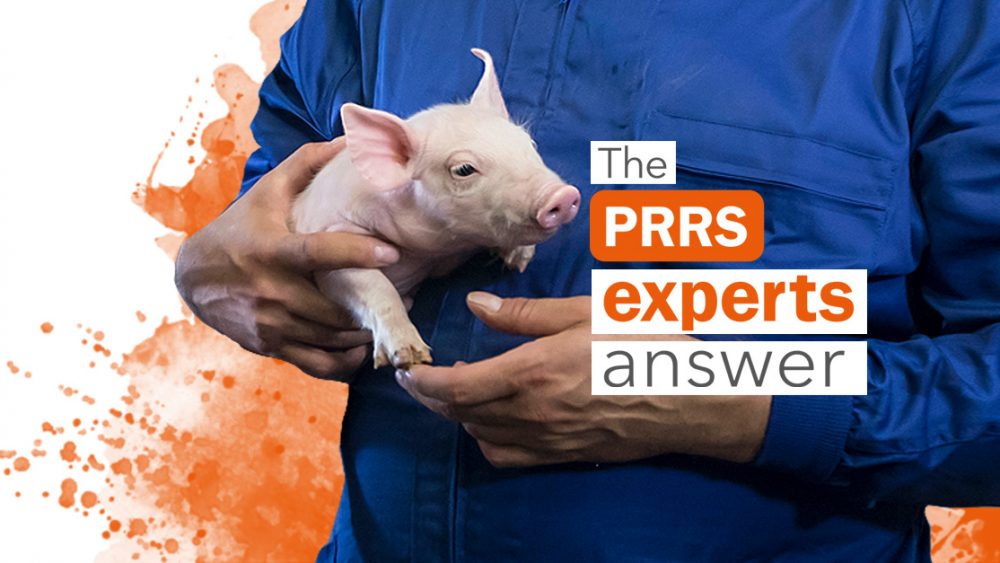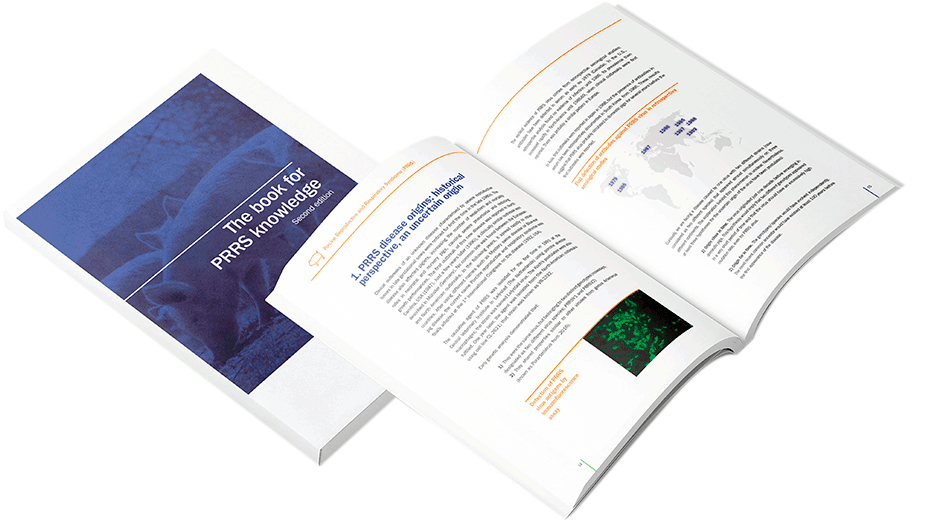People who handle pork represent a very low risk regarding the spreading of diseases on swine farms.
Pork can only contaminate the hands or clothes (including the footwear) of handlers. In case of handling contaminated pork, the risk would be reduced if before entering in the farm the washing of hands and a change of clothing and footwear was a requirement.
Most of the farms have already implemented biosecurity protocols for their visitors.
It will be enough if they include the change of footwear and the obligation of using gloves.
The risk will be further reduced if the pork handler doesn’t visit the farm until the day after performing their job (to avoid the direct entry from the pork processing plant to the farm).
You can ask your own question! Visit Pig333.com and submit your question to the experts.
¿Las personas que manipulan carne de cerdo representan un riesgo de trasmisión de PRRS u otras enfermedades si ingresan a las explotaciones porcinas?
Las personas que manipulan carne de cerdo representan un riesgo muy pequeño de transmisión de enfermedades a las explotaciones porcinas.
La carne sólo puede contaminar las manos o vestimenta de los manipuladores (incluido calzado). En caso de manipular carne contaminada el riesgo se reduciría siempre que antes de entrar en una explotación se exigiese la limpieza de manos y cambio de vestimenta y calzado.
La mayoría de explotaciones ya tienen en marcha protocolos de bioseguridad para las visitas.
Siempre que incluyan cambio de calzado y vestimenta a la vez que lavado de manos u obligación de uso de guantes sería suficiente.
Si además se exigiese una noche de descanso (evitar la entrada directa de la planta de procesado de carne a la granja) todavía se reduciría más el riesgo.
Puedes formular tu propia pregunta! Visita 3tres3.com e introduce allí tu pregunta a los expertos.

Marcovetgrup S.L. – Spain




